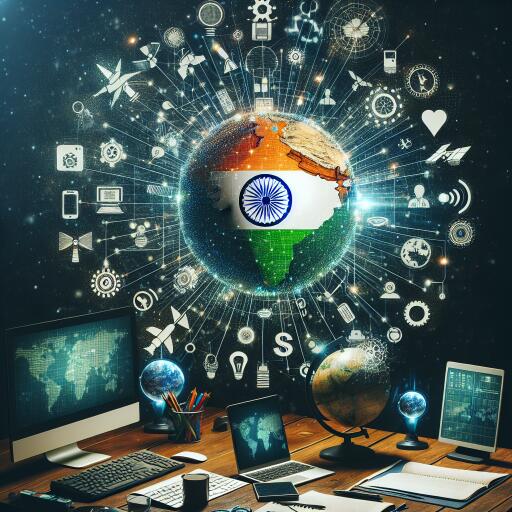Indian Tech Firms Making a Mark on the Global Stage, Says SAP’s Manish Prasad
In a significant shift that has been brewing over the last decade, Indian technology firms, ranging from burgeoning startups to established enterprises, are beginning to leave their mark not just domestically but on a global scale. Manish Prasad, the President and Managing Director for SAP Indian Subcontinent, highlights this transformation, shining a spotlight on the promising trajectory of Indian technology firms worldwide.
SAP, a global powerhouse in cloud software, sees a bright future for India as it continues to attract global players across various sectors, including manufacturing, electronics, semiconductors, and technological innovation. “The potential for Indian technology to lead not just domestically but internationally is immense. This stems from a shifting culture in India towards innovation and global outreach,” Prasad shared during a discussion.
The burgeoning startup ecosystem in India, currently the third largest globally, is poised for explosive growth. Predictions suggest the landscape will expand to include approximately 10 lakh new startups and 10,000 unicorns over the next decade. With over 1 lakh startups and about 110 unicorns already established, the country’s tech scene is vibrant and teeming with potential.
Prasad expressed admiration for the global impact that Indian technology firms are already achieving. The acceleration of Indian companies making acquisitions worldwide and effectively integrating these assets showcases India’s growing prowess and influence in the global technology domain.
The Indian government has recognized startups as crucial engines propelling the country towards the ambitious vision of ‘Viksit Bharat’ by 2047. Paul Marriott, SAP’s President for Asia Pacific Japan (APJ), emphasized the role of visionary political leadership, the talented youth demographic, and a thriving AI and startup ecosystem in propelling India toward its goal of a $30 trillion GDP by 2047.
According to Prasad, the transition towards a globally recognized technological hub is already underway at an impressive pace in India. Despite occasional challenges, the country’s journey towards becoming a significant player on the international stage seems well on its path.
An interesting datum to note is that nearly 60 per cent of India’s GDP is now connected to the SAP ecosystem, attesting to the substantial influence and integration of SAP’s technologies within India’s economic framework. Moreover, SAP’s largest research and development (R&D) center outside Germany is located in India, further highlighting the strategic importance of India in SAP’s global operations.
In conclusion, the narrative of Indian technology companies is one of remarkable growth and expansion. With a supportive ecosystem for startups, forward-looking policies, and a culture that increasingly embraces innovation and internationalization, India is set to play a pivotal role in the global technology landscape in the years to come.
